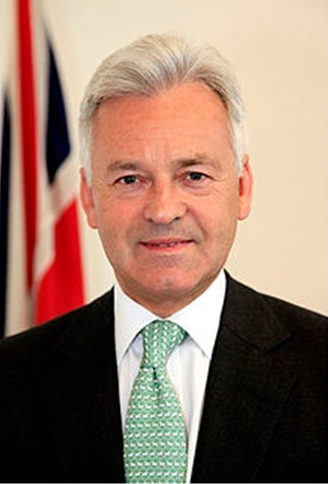Oct. 11, 2016, the website of parliament.uk recorded the debate of parliament members around the topic of “Organ Harvesting”. In this debate, Sir Alan Duncan, said: “Indeed, based on all the evidence available to us, we cannot conclude that this practice of “organ harvesting” is definitely happening in China.” And he emphasized that in the past eight years, more than 100 countries, including China, have endorsed the principles of the declaration and subsequently strengthened their laws against the commercial organ trade.The following is exactly what Sir Alan Duncan said in the debate.
Thank you, Mr Gapes, for calling me to speak; I am very pleased to respond to this important debate. Of course, normally it would be the Under-Secretary of State for Foreign and Commonwealth Affairs, my hon. Friend the Member for Reading West (Alok Sharma), who would reply, but he is in Indonesia. So I am very pleased to take his place, in order to respond to the concerns about this issue that have been so graphically expressed in this debate.
I thank the hon. Member for Strangford (Jim Shannon) for securing the debate, and let us be very clear from the outset that any form of involuntary organ removal violates established medical and legal principles. However, the concerns that Members have expressed today relate to the most disturbing form of involuntary organ removal— “organ harvesting”. Organ harvesting is the notion that members of minority groups and religious groups in China are held in detention, are unable to communicate with the outside world, and are killed specifically for their organs, virtually “to order”. To hon. Members—and indeed the citizens of this country—the notion of organs being “harvested” and used for transplant, virtually “to order”, is particularly abhorrent. There is also the separate ethical and moral question of involuntary organ removal from executed prisoners, with or without their alleged consent.
As we have heard, recent publications, including some that have been referred to in this debate today, have brought the issue of alleged “organ harvesting” into the spotlight. The authors of such reports believe that this practice is happening in China today and that the victims are mostly innocent people who just wish to practice their religion peacefully.
My officials consider the Kilgour, Gutmann and Matas report to be a very important source of information about China’s organ transplant system. It highlights how difficult it is to verify the number of organ transplants conducted in China each year, and states that it is almost impossible to identify the source of those organs.
The report rightly questions the lack of transparency in China’s organ transplant system. However, the authors of that report make it clear that they have no definitive evidence to justify their allegations. They are necessarily forced to rely on assumptions, and sometimes on research techniques that are less than rigorous. Although I do not doubt the need to maintain close scrutiny of organ transplant practices in China, we believe that the evidence base is not sufficiently strong to substantiate claims about the systematic harvesting of organs from minority groups. Indeed, based on all the evidence available to us, we cannot conclude that this practice of “organ harvesting” is definitely happening in China.
It may not be practical to police it, but I can assure the House that the UK works with like-minded partners to strengthen the rules surrounding organ transplantation worldwide. This includes the development of the World Health Organisation guiding principles to ensure that organ removal for transplant takes place only according to agreed guidelines. We also support the declaration of Istanbul, which encourages all countries to draw up legal and professional frameworks to govern organ donation and transplantation activities. In the past eight years, more than 100 countries, including China, have endorsed the principles of the declaration and subsequently strengthened their laws against the commercial organ trade.
Contrary to some reports, our trading relationship with China does not prevent us from having frank discussions with the Chinese authorities on issues of concern such as this. We will continue to engage with them on the full range of issues, including organ transplants and the wider human rights agenda. We will continue to promote the universal values of freedom and respect for human rights and the importance of international co-operation.

Alan Duncan
Alan has been appointed as Minister of State for the Foreign and Commonwealth Office in Prime Minister Theresa May’s new Government.
Alan will serve under Foreign Secretary Boris Johnson and takes on responsibility for Britain’s relationship with Europe and the Americas.
Source:https://hansard.parliament.uk/commons/2016-10-11/debates/415E2EC0-F4D8-4E94-AD76-D980010ACD69/ForcedOrganRemovalChina